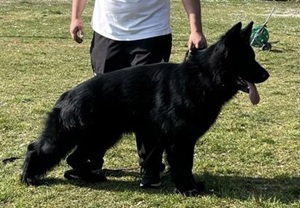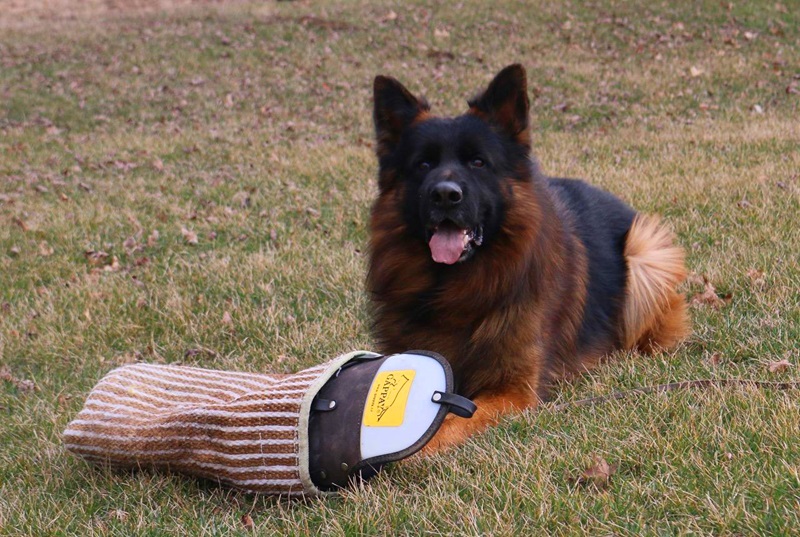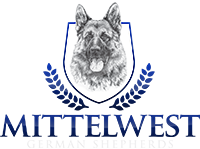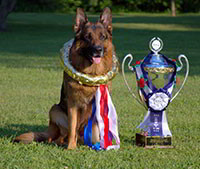Are you thinking about bringing a German Shepherd into your life? One of the big questions many future fur parents have is about their behavior, especially their territorial instincts. Will they be aggressive? Can their protective nature be managed? The good news is that these pups can become the most loving companions with the right approach.
If you’re curious about how their territorial nature might affect your everyday life, you’re in the right spot! Let’s dive into what makes German Shepherd dogs tick when it comes to their protective instincts. Plus, we’ll share some awesome tips to help you create a harmonious bond with your future furry friend.
How Territorial Are German Shepherds?
GSDs are famous for their smarts, loyalty, and adaptability. These pups are all about companionship and a source of human joy. With their strong protective instincts, they often take it upon themselves to guard their families and their turf. Understanding these excellent traits is critical to building a happy, balanced relationship with your furry friend.
These dogs have a natural drive to protect, which plays a massive role in their territorial behavior. When they sense something’s off, their loyalty kicks in, and they’re ready to defend their space. This mix of loyalty and protectiveness is what makes the breed so unique!
So, how can you tell if your pal is feeling territorial? Keep an eye out for some signs! You might notice them barking, growling, or even standing guard. Watch for their focus, if they’re fixated on something or someone, they might be gearing up to defend their territory!
Their body language is essential as well. A confident GSD will stand tall, ears perked, and tail up when feeling protective. Their reactions can vary, especially when faced with unfamiliar people or other animals. So, being aware of these signs can help you respond appropriately.
Getting to know your furry friend is critical, but digging into what influences their behavior is where the magic happens! Understanding the factors affecting their behavior can create a more balanced relationship with your loyal companion.
What Are The Factors Influencing This Behavior?
Getting a grip on what drives your pet’s territorial behavior is crucial for keeping things in check. Many factors, like genetics, socialization, training, and their environment, come into play. Recognizing these influences can help your pup become a well-adjusted and balanced buddy.
Genetics
Genetics is a big deal when it comes to how a dog behaves. Some dogs are naturally wired to be more territorial due to specific genetic traits. How they’re bred can shape their temperament and how those protective instincts emerge.
Socialization
Socialization helps you manage any unwanted territorial tendencies. Introducing your pup to different environments and experiences is a game-changer! Positive reinforcement during these introductions can help ease their nerves and boost their confidence. A well-socialized dog is way less likely to see new situations as threats.
Training Impact
Obedience training is another must-have tool for keeping those territorial instincts in check. When you set clear expectations and use consistent commands, your dog learns what’s acceptable behavior. This kind of guidance can cut down on unwanted guarding.
Environmental Influences
Living conditions can significantly affect a dog’s territorial behaviors. Urban environments might present challenges different from those in rural settings. A secure and stable home is crucial for a well-adjusted dog. Creating a safe space can help mitigate anxiety and protect against unnecessary territorial responses.
Now that you know these factors, assessing your readiness to own a protective dog is essential. Analyze your lifestyle, environment, and ability to commit to training. Studying the breed and understanding its needs will prepare you for a rewarding experience with your loyal companion.
Why Should You Adopt A German Shepherd?
Adopting a German Shepherd comes with unique challenges and rewards, particularly regarding their territorial instincts. Although misconceptions about these traits exist, the proper understanding can lead to a fulfilling partnership. With adequate information and awareness of their positive traits, owning a GSD is worth it.
Misconceptions Are Often Far From Reality
There are quite a few myths out there about German Shepherds, especially when it comes to their protective nature. One big misconception is that territoriality automatically means aggression. These protective behaviors are all about a dog’s instincts to keep their home and family safe. It’s not about being aggressive.
Another myth is that all GSDs are unfriendly or untrustworthy around strangers. With the proper socialization and training, these pups can learn to distinguish between real threats and friendly visitors. It’ll make them both protective and welcoming.
And then there’s the belief that territorial behavior can’t be managed. Not true! You can guide your dog to respond appropriately with consistent training and clear boundaries. By clearing up these misconceptions, future owners can truly appreciate the extraordinary nature of the breed.
Their Territorial Instincts Are Beneficial
Territorial instincts in GSDs provide several valuable benefits. Their natural guarding abilities make them exceptional family protectors, offering a sense of security that many families appreciate. This instinct can deter potential intruders, ensuring a safer home environment.
Moreover, these protective behaviors can significantly strengthen the dog’s and its owner’s bond. When a dog feels a sense of responsibility for its family, it fosters loyalty and trust. This deep connection enhances the relationship as the dog becomes more attuned to the owner’s needs and emotions.
Understanding all these factors helps you confidently tackle the challenges of raising a protective dog. It’s all about strategizing and mastering the art of training, feeding, and caring for your German Shepherd. It comes down to how you manage your pup.
How Do You Manage Their Territorial Behavior?
Managing your pet’s protective instincts takes a thoughtful approach. You can enhance their behavior by focusing on practical training, socialization, and structured routines. These strategies will help you nurture a well-adjusted and balanced companion!
Utilize Training Techniques
Practical training is a must when it comes to curbing excessive territorial behavior. Positive reinforcement is your best friend here. Reward the behaviors you want to see more of, and stay consistent to establish clear boundaries. Regular training sessions can turn your pup into a well-mannered companion.
Employ Socialization Strategies
Gradually introducing your German Shepherd to new people and animals is essential for a well-adjusted companion. Start with controlled introductions in calm environments to minimize stress and overwhelm. This approach allows the dog to acclimate at its own pace, fostering confidence in new situations.
Utilizing positive reinforcement during these introductions can further ease the transition. Rewarding your dog for calm behavior helps reinforce positive associations with new experiences. Over time, this strategy builds comfort and reduces territorial responses. It enables your dog to interact more freely with its environment.
Create Clear Boundaries
Setting physical and emotional boundaries is vital for your pet’s well-being. Establishing clear rules helps the dog understand what is expected in different situations. This structure prevents confusion and manages territorial instincts effectively.
Owners should implement consistent routines that provide a sense of predictability. Knowing when to expect exercise, feeding, and playtime fosters security in the dog. This clarity helps your pal feel safe in its environment, reducing anxiety and potential territorial behaviors.
Keep Your Dog Active & Engaged
Physical activity plays a significant role in managing energy levels. Regular exercise helps reduce territorial tendencies by channeling energy positively. Engaging in mental enrichment activities is equally important. Puzzle toys and training games can keep your dog mentally stimulated.
While these training strategies are helpful, it all starts with choosing the right pup. Getting a purebred German Shepherd from a trusted breeder sets the foundation for success. A reputable breeder ensures quality, making it much easier to implement practical training and socialization.
Why Go To Mittelwest When Adopting A GSD?
 Starting with a reputable breeder like Mittelwest is essential for a successful partnership. Our purebred GSDs are bred from top-quality West German Sieger show lines. It ensures excellent temperament and health. This strong foundation will significantly enhance your ability to train and socialize your new companion effectively.
Starting with a reputable breeder like Mittelwest is essential for a successful partnership. Our purebred GSDs are bred from top-quality West German Sieger show lines. It ensures excellent temperament and health. This strong foundation will significantly enhance your ability to train and socialize your new companion effectively.
At Mittelwest, we offer regular Schutzhund Training Club sessions, where dogs of all ages can participate. This environment is perfect for early socialization, helping your puppy build confidence and learn vital skills. Our training resources ensure you have the support needed to constructively manage your dog’s protective instincts.
Choosing a pal from Mittelwest means you’re getting a loyal, well-rounded companion. Our commitment to quality and character in every puppy provides a solid basis for mastering your furry friend’s behavior, making your experience as an owner both fulfilling and rewarding.
Summary
Understanding the territorial behavior of German Shepherds is essential for potential owners. By recognizing their protective instincts and addressing common misconceptions, you can effectively manage these traits through training and socialization. This proactive approach fosters a rewarding companionship with a loyal and loving dog.
Choosing a purebred German Shepherd from a reputable breeder like Mittelwest sets a strong foundation for success. You can confidently navigate the challenges and joys of raising a well-adjusted canine companion with quality genetics and support.













